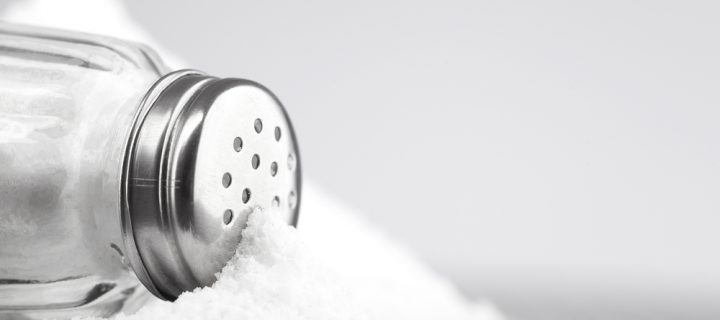Can you ‘fix’ eating fries and microwave dinners, with a snack of bananas and a trip to the gym? Researchers say, maybe not.
I walk. I go to the gym. And often, I eat my broccoli. But I still love a good bag of chips.
Many people may feel, as I do, that eating an overall balanced, healthy diet is compensating for a few guilty pleasures. If you’re getting all of your vitamins and minerals and keeping the blood flowing, you’re on the right path, right?
Yes, and possibly… no. A recent study conducted by the big brains at Imperial College London and Northwestern University has found that you can’t really compensate for eating too much salt.
Related: Are Millenials Really the Fattest Generation?
“We currently have a global epidemic of high salt intake – and high blood pressure,” says Dr. Queenie Chan, joint lead author of the study from the School of Public Health at Imperial.
“This research shows there are no cheats when it comes to reducing blood pressure. Having a low salt diet is key- even if your diet is otherwise healthy and balanced,” she adds.
Sodium vs Potassium
Researchers tracked the diets of 4,680 people, aged 40-59, from the USA, UK, Japan and China between 1997-1999. Volunteers were followed over the course of 4 days.
They had 2 urine samples taken during that time, and also had their height, weight and blood pressure taken.
Researchers used dietary data to assess the volunteers’ intake of over 80 nutrients that may be linked to low blood pressure, including vitamin C, fibre, and omega-3 fatty acids, things that are often found in veggies, fruit and whole grains.
The results? It was found that the average daily salt intake across the study was about 10.7g a day, which is slightly over the recommended intake in both the UK and the US.
People who had a higher salt intake tended to consistently show a higher blood pressure. This was true even if they were eating a high amount of potassium and other healthy nutrients.
Limits
Dr. Chan feels it’s a trend of our times.
“As a large amount of the salt in our diet comes from processed food, we are urging food manufacturers to take steps to reduce salt in their products.”
The take away? Don’t deny yourself completely of those salty snacks, but limiting them could be a good course to pursue.
Researchers say they’re hoping to focus on longer studies next time, covering a larger number of people. They hope to provide even more accurate insights into what salt is doing to us, and how we can best approach something we direly need but not too much.
Photo credits: Miro Novak/Shutterstock.com












